Here is a story that I had to write for my English class. I have used aspects of my other story, My War. This story is based on the Battle of Lone Pine and how 2 mates friendship continued even after death. This story is classified as a detective fiction story.
18th May 1985:
As I walk through the fields, gunshots again ring through my head and send shivers down my spine. Poised like a snake in the mountains, we ambushed the Turks, taking them by surprise. A fellow soldier was shot. The service for his country came at a price. He was soon on the ground, screaming for help. We could do nothing. His wounds were too serious. He knew this and before we could stop him he pulled out his gun and died from self-inflicted wounds. Or so we thought.
I was 29 when I enlisted for the Australian Imperial Forces. I had been a detective for 5 years and undergone many months of training. You would think that all the training would have helped me when I enlisted. However, nothing could have prepared me for what happened at Lone Pine.
I was placed in the 1st Brigade where many men I knew were stationed. I became very close with a man named Andy who was 31 and a teacher from Mackay. It was during the battle of Lone Pine that he was injured and, soon after that killed.
As we were walking to battle, I could feel there was a lot of tension in the air. There had been many disagreements in the brigade and it made it hard to work together. When Andy and Baz had confliction opinions, it was like two dogs fighting for dominance but no one gained anything over the other. As we arrived at the ‘zero hour’ location, I had a bad feeling about this operation. I often felt this way when doing my detective work but this felt different. It was a feeling of danger, which naturally didn’t sit well with me. The Brigade Commander soon spoke. “Men, I have received word that there is 60 minutes until hop over. Start to begin battle prep.” Nothing more needed to be said. Men all around began to prep their rifles to charge the Turks.
The time was coming closer. It was now 5:20. 10 minutes to go until zero hour. We all knew there was no room for mistake. As the time came closer, I positioned my self between Andy and Baz. 3 minutes to go. My heart was racing. 2 minutes. I started to pray to god. 1 minute to go and before I knew it, men were hopping over the parapet and charging the enemy.
This is the part that has stuck in my mind for the past 75 years. Andy had hopped over before me and was about 10 meters in front of me. All I could hear was the whizzing of bullets and the screams of comrades falling to the ground in pains. Many of them to their deaths. I was one of the lucky ones that made it to the enemy trenches first. The Turks had cleverly disguised their trenches that our planes could not see them. They were also covered all the way around so it made it virtually impossible to get into. It was a while before we gained access, but when we did, we captured around 70 Ottoman troops. When I made sure the enemy soldiers were detained, I went in search of Andy. I was pitch black in the new trench, so it was hard to know where to go. I started to call his name, more and more frantically as time passed. As I was beginning to lose hope, I heard a faint call coming from out in front of me. I knew by the tone it was Andy. “Help me Walter” he called, almost crying. I knew I needed to help him.
Without thinking about what I was doing, I began to crawl out of the trench. Soldiers from my brigade, including the Brigade Commander, we yelling at me to get back to the trench. I ignored them and continued to crawl towards the voice that was getting louder and louder the more I crawled. Mateship was just as important as self-preservation at Gallipoli and when you saw a mate that was injured, you would do whatever you could do to help them. When I looked up, not 20 meters in front of me was Andy, laying on his side, clutching his left leg with his hands covered in blood. When I got to him, he just looked at me. After a few seconds, he opened his mouth and whispered the words, “I’m in pain. Help.” I carefully picked him up and started to run back towards the newly captured trench. Andy was complaining with every step I was taking but I ignored him and kept on running until I reached the trench.
When I reached the trench, mates were there to assist me in getting Andy into the trench. Once he was laid down on the trench floor, one of the soldiers Matt who was a doctor began to assess him. After what seemed like hours, the examination was finished. Matt came to the conclusion that the gun shot wound that Andy has received had severed major tendons and arteries. The best option for Andy was for him to be evacuated to the hospital ship but even then, it wasn’t a guarantee that he would survivce. All the while this conversation was happening, Andy had been complaining and he was giving up hope. “I cannot cope with all of this pain” he cried and before we could stop him, he took out his gun, said a quiet prayer and shot himself. At least that was what it looked like.
We continued on with our duties at Gallipoli. Andy’s body was sent off for an autopsy and then returned home to Mackay. It was extremely hard for me as I had just lost my best mate. A couple of weeks later, I was summoned to a meeting with the Brigade Commander. I was the only person that he had wanted and I instantly started to wonder what I had done wrong. We sat in silence for a couple of minutes before the commander spoke up. “I have received some information on Andy’s death.” Before I could ask what it was, he was pushing a piece of paper into my hands. I began to read it.
‘Dear Brigade Commander Watson,
After conducting an autopsy on Sgt. Andy Puller, I thought it would be prudent to contact you and share this information. I found some suspicious findings while examining Puller’s body. After reading Sgt. Pullers notes, It was recorded that he died from ‘self inflicted wounds’. After examining his body, my findings conclude a different type of wound. When I examined the gunshot wound, it was evaluated that the blast was not a short distance but a long distance bullet wound.
I recommend that you follow this up with your brigade as I find this quite suspicious.
Kind Regards,
Matthew Packish
Forensic Pathologist’
I can remember reading that letter with tears streaming down my face. To know that a fellow soldier had the guts to kill a fellow soldier was horryfing. If almost reading my thoughts, the commander said “I know this is a tough subject for you but I promise you we will resolve this issue and the culprit will be found.” I thanked the Brigade Commander and left the dugout with a heavy heart.
True to his word, the Brigade Commander held a meeting the next morning. He informed the brigade of the situation and explained that if the killer did not come forward, he would personally make sure that drastic actions were to be taken. He also asked that if anyone knew anything about the incident to come and talk to him privately. Almost immediately after he had finished talking, Baz put up his hand and asked to speak with the Commander separately. That was the last I saw of Baz during the war.
After the war, I found out that Baz had admitted to killing Andy although his motives were unknown. I was asked to be present at the time of the court hearing. Baz was trialed and found guilty of murder. He was sentenced to death by hanging. That was the closest I ever got to closure. I was also nominated to receive the Victoria Cross for bravery during battle. I was asked to write a speech.
At the ceremony, I presented my speech. I talked about Andy and how he was the perfect person that anyone could be around at war. I also said that I dedicated the medal to Andy.
When that incident at Gallipoli happened, I promised myself that I would make Andy proud. There is not a day that goes by that I do not think of him and I hope that I have done him proud. RIP Andy.


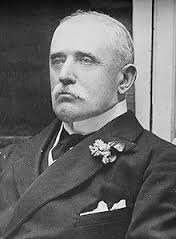
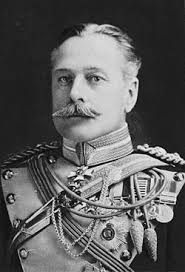





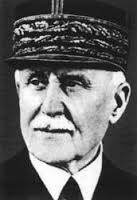


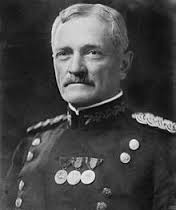
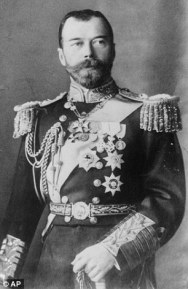

Recent Comments